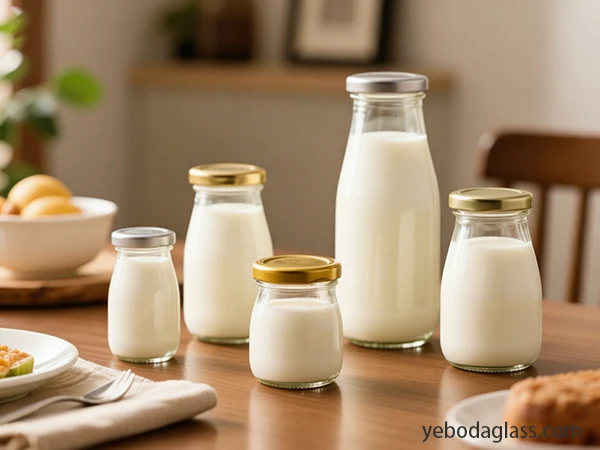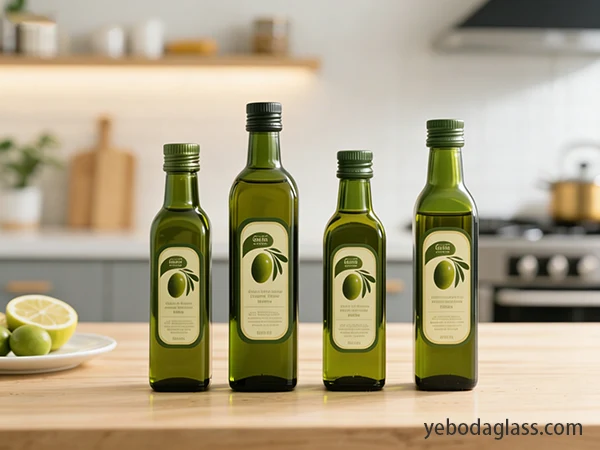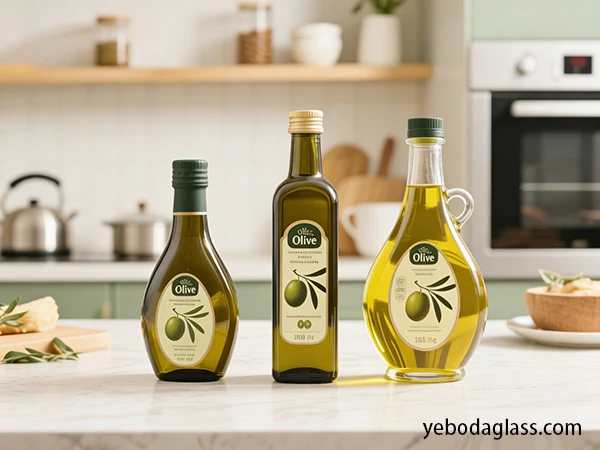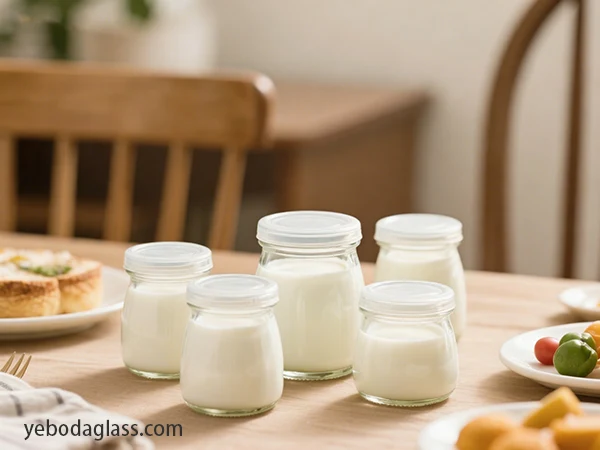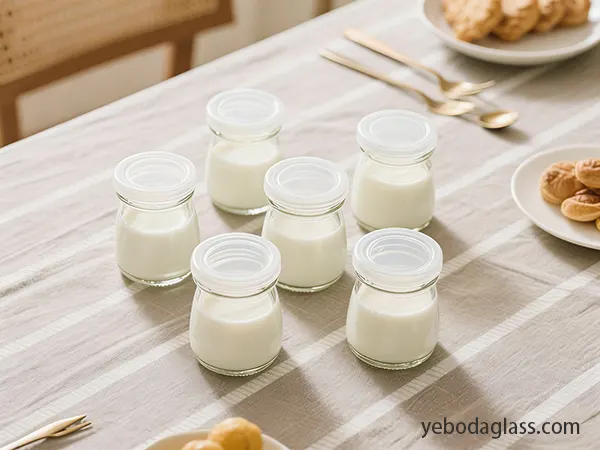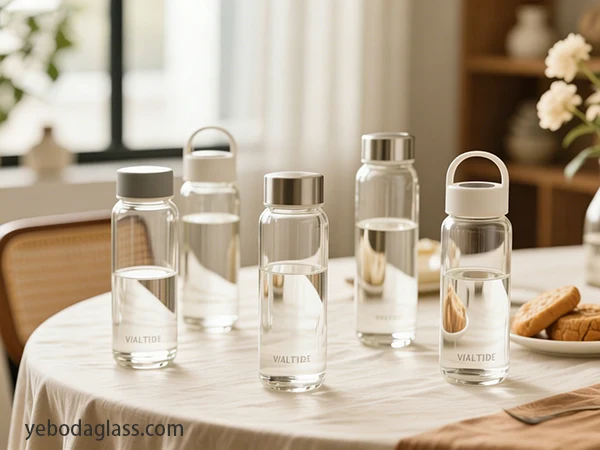Executive Summary
Hot sauce bottles bulk play a crucial role in scaling your brand. Production expansion brings challenges, and choosing the right bottle supplier is a strategic decision impacting safety, brand perception, and profitability. This guide provides a structured approach to sourcing, vetting, and selecting a reliable supplier to ensure your packaging drives growth rather than limits it.

Defining Core Sourcing Parameters
It is very important to internally define sourcing parameters in detail before marketing any conversation with possible manufacturers. The fundamental work provides the alignment among marketing, production, and procurement teams. A specification sheet, that is well documented, becomes the main tool of communication with the suppliers as well as the performance measurement reference when ordering hot sauce bottles made of glass or in bulk.
Minimum Order Quantity (MOQ) and Volume Forecasting
Forecasting Demand and Supply Alignment
The type of supplier you can work with depends on the volume of your needs. First of all, come up with a sales forecast for the next 12-24 months specifying monthly or quarterly bottle requirements. This forecast will make it clear what kind of supplier you will require, a local glass bottles producer or factory with large capacity and worldwide distribution?
MOQ Alignment and Scalability
In general, suppliers MOQs are between a few thousand and several hundred thousand bottles per one order. A typical result of trying to negotiate an MOQ that is far below a supplier’s minimum is unproductive. It is better to concentrate on suppliers whose MOQ matches your forecast. Similarly becoming is the supplier’s ability to expand, i.e., the supplier should be capable of supporting your brand growth and be able to maintain a steady flow of goods as your order quantity increases.
Material and Design Specifications
Material Selection
Hot sauce is a highly acidic food and thus constitutes a packaging material that is chemically stable and durable is a must. The most widely accepted material for glass hot sauce bottles is Type III soda-lime glass, which is a great food-contact safe and cost-effective solution.
- Color and Clarity: Decide if the product should be visible or not. If so, go for flint (transparent). If the priority is UV protection, then opt for amber.
- Glass Strength: Think of the glass being tempered or extra thick if the product is going to be shipped and has to endure the long-distance handling.
- Chemical Resistance: Do not forget to make the packaging resistant to capsaicin oils and vinegar-based sauces.
Bottle Design and Functional Requirements
Make a choice between stock designs (for example, the 5 oz Woozy or Boston Round) and custom molds. If you want your brand to be unique then you se the custom but by the same token, tooling costs can be anywhere from $5,000 up to $25,000 and the lead time is longer. Procure the technical drawings that specify in detail: The dimensions of the bottle with the tolerances.The capacity for overflow and the thickness of the walls.Neck finish (e.g., 24/414 CT) for closure compatibility.Dimensional uniformity for hot sauce bottles bulk is very important if one is to avoid leakage and at the same time production line filling and capping machinery should operate without interruptions.
Supplier Discovery and Initial Vetting for Hot Sauce Bottles Bulk
Once the need is established, the natural progression is to meticulously conduct supplier discovery. The goal here is to generate a pool of candidates and then gradually narrow it down to a final list of 5-10 hot sauce bottles bulk manufacturers worthy of consideration.
Looking for Potential Hot Sauce Bottle Bulk Suppliers
Online Platforms and Directories
Employ different channels to find suppliers that you can rely on:
- Global Platforms: Alibaba, Made-in-China, and Global Sources for large-scale international producers of glass hot sauce bottles bulk.
- Local Directories: Thomasnet (U.S.), Europages (EU) for locally established suppliers.
- Trade Fairs: By going to such events as Pack Expo or Canton Fair, it is possible for producers to obtain direct exposure to their customer base.
- Industry Networks: Talk to field specialists and reach out to packaging associations for reliable help.
Evaluating Online Presence
Having a good website, a handy catalog, and understandable business-related documents a supplier can be more reliable. Glass hot sauce bottle buyers should look for detailed specs, material datasheets, and well-known certifications.
Framework for Shortlisting Candidates
Employ a multi-level vetting mechanism to recognize the vendors that suit you the most and to eliminate those that are inappropriate from the very beginning:
- Initial RFI (Request for Information): Place your specification sheet, MOQ, and compliance requirements in the request.
- Response Analysis: Assess the professionalism, the speed of the response, and the knowledge of the products of the vendor.
- Capability Matching: Check production capacity, MOQ, and certifications against your requirements.
- Reputation Check: Look for customer review and case studies. If you walk into a supplier’s door and find consistent negative feedback on their quality or punctuality of deliveries, then it is safe to say that they should be disqualified right away.
This stage is ensuring only premier hot sauce bottles bulk manufacturers are passed.
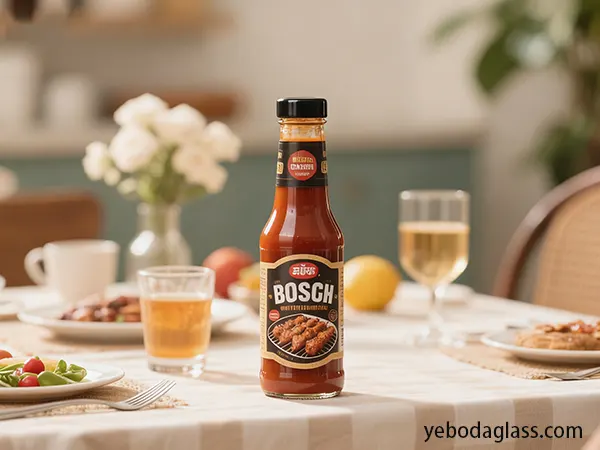
Auditing Quality Management Systems and Regulatory Compliance
The audit phase is the point where supplier reliability and the commitment to safe food practices are confirmed. Quality failures in glass bottles can cause significant recalls — so, strict verification is required.
Document Verification
- ISO 9001:2015 Certification: It is the main confirmation of a quality standard management system being well established and implemented.
- BRCGS or FSSC 22000: These are GFSI recognized standards that provide assurance of good hygiene practices and effective hazard control measures.
- Certificate of Compliance (CoC): For every batch of glass hot sauce bottles bulk, there should definitely be a CoC that verifies compliance with all the material and safety standards.
Sample and Batch Testing
Production samples should always be of the highest priority if you are planning to place an order:
- Check the appearance for defects (air bubbles, uneven glass, sharp edges).
- Confirm dimensional accuracy with the help of calipers.
- Do leakage tests on the closure to confirm that it is leak-free.
Obtain results of tests performed by independent laboratories that confirm the product is free of heavy metals and that it is chemically stable.
Facility Audits
Perform either an on-site audit or a virtual factory tour. A clean, well-organized production area indicates strong process discipline. When direct travel is not possible, contract third-party auditors like SGS or QIMA to perform impartial assessments.
Evaluating Production Capabilities and Technical Scalability
Evaluating production infrastructure helps ensure consistent, long-term supply of hot sauce bottles bulk.
Manufacturing Infrastructure and Automation
Modern factories deploy IS forming machines, automated inspection systems, and robotic packing lines. Ask about:
- Machine age and maintenance cycles
- Automated defect detection systems
- Capacity utilization rates (ideal range: 75–85%)
A facility operating beyond 90% capacity may struggle to handle surge orders or custom runs.
Custom Design, Prototyping, and Value-Added Services
In-house design, prototyping, and decoration is a facility that suppliers can offer and that can create a strong value for maintaining brands growing.
- Mold Design and CAD Services: Determine their capability to manufacture less waste, ready for production bottles with geometries that are of the industrial or scientific field.
- Prototyping: 3D printing or small-batch mold tests before large-scale tooling is done.
- Decoration: Printing to the screen, labeling, embossing, or ACL (Applied Ceramic Labeling).
- Integrated Packaging Solutions: Some suppliers can even take care of closures, inserts, and shipping cartons.
- Example: A supplier like Yeboda is the best choice for its super-clear flint glass and the great flexibility in the production of the hot sauce bottles bulk. Their focus on precision molding, quick prototyping, and steady QC output puts them at the top of the reliability list for brands going global.
Assessing Supply Chain Logistics and Resilience
The point of good glass hot sauce bottles is lost if the delivery comes late or in a bad condition. That is why supply chain reliability should be the base of any sustainable growth.
Lead Time and Fulfillment Efficiency
- Production Lead Time: Normally 4–6 weeks for a stock model; 8–12 for a custom design.
- Transit Time: It depends on the mode of shipping — 5–8 weeks by sea, 1–2 weeks by air.
- On-Time Delivery Rate: Suppliers should be able to perform at >95% OTD level.
Packaging, Freight, and Incoterms
- Palletization: Properly heated pallets, layer pads, and shrink wrap are what prevent the goods from being damaged during transportation.
- Freight Terms: Make sure that the terms are either FOB, CIF, or DDP.
- Insurance and Risk Transfer: Know the point where ownership changes — most of the time it’s at the port of loading under FOB.
Geographic and Political Risk
Assess issues such as long waiting times in the port, the stability of the region, and the reliability of the labor force. Choose hot sauce bottles bulk suppliers that are located in geopolitically stable areas and have more than one route available for shipping.
Conducting Total Cost of Ownership (TCO) and Partnership Analysis
Local price is just one component of the entire cost picture, which also brings in factors such as logistics, quality, and relationship management costs.
Comprehensive Financial Evaluation
- Unit Price and Price Stability: Determine the periods of validity so that you will not experience unexpected surcharges.
- Mold and Tooling Fees: Make sure you know the confirmation of the custom design ownership rights.
- Freight, Tariffs, and Insurance: Take into account a landed cost breakdown.
- Quality Costs: Assess possible scrap rates or rework demands.
- Inventory and Warehousing: Find out if the supplier has a JIT or VMI program.
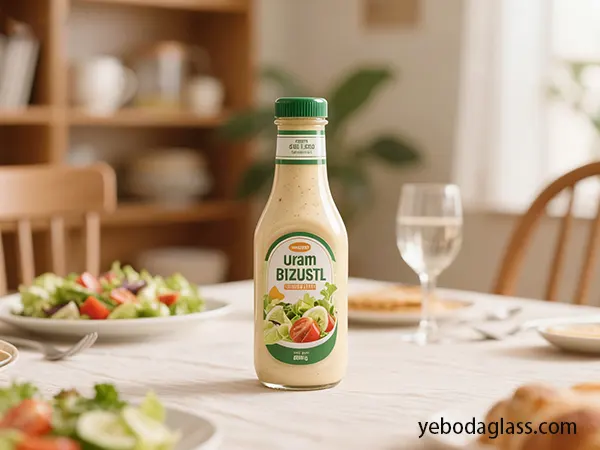
Partnership Evaluation
- The secret of long-term success with glass hot sauce bottles bulk lies in the factors of trust and transparency.
- Evaluate the partners on their response to you, way of communication and cultural background.
- Make sure there are escalation levels for times when you need help the most.
- Check for suppliers that are proactive and who will give you a heads up on production delays well before they occur.
Negotiation, Contract Structuring, and Risk Mitigation
Good negotiating turns evaluation into partnership. Agreements should safeguard your interests and at the same time facilitate shared growth.
Key Negotiation Elements
- Payment Terms: Negotiate Net 30–60 for better cash flow.
- Price Lock: Fix pricing for 12 months to shield from glass raw material fluctuations.
- Service Levels: Embed delivery KPIs and quality thresholds into agreements.
Contractual Protections
Include clauses on:
- Quality Guarantee and rework obligations.
- Force Majeure coverage.
- Termination Rights and notice periods.
- Tooling Ownership: Your company should retain IP over custom molds.
Building Long-Term Collaboration
The relationships that are most successful in the bulk buying of hot sauce bottles usually end as strategic alliances.
Continuous Improvement
It is advisable to perform quarterly reviews of the employees’ performances, to analyze the trends of the KPIs, and, if needed, to implement the corrective actions related to the root causes.
Co-Innovation and Sustainability
Work with your suppliers to:
- Concrete the plan of the glass is lighter, the Eco formats avoid the material.
- Make the product more recycled content (PCR glass).
- Investigate energy-efficient heating of the furnace.
- Such moves not only improve a brand’s sustainability credentials but also help save money in the long run.
Digital Supply Chain Integration
Digitally-enabled tools can greatly enhance supply chain visibility and flexibility in a global sourcing for hot sauce bottles bulk.
ERP and Data Synchronization
Linking of ordering, invoicing, and shipment tracking to shared ERP systems to simplify processes.
Predictive Demand and Forecast Sharing
Employ analytics demand forecasting tools to detect rapid increases in demand and to enable suppliers to prepare capacity ahead of time in order to eliminate waiting times or lack of glass hot sauce bottles stock.
Final Selection Matrix and Risk Mitigation Strategy
The last point is to combine all your studies into a structured tool for making decisions and figure out how to handle the risks related to the supplier you chose.
Structured Decision-Making Framework
Employ a weighted scoring matrix to contrast the candidates you have shortlisted (2-3) in an impersonal manner. This helps to eliminate the influence of emotions and biases in the decision.
| Criteria | Weight | Supplier A Score (1-5) | Supplier A Weighted | Supplier B Score (1-5) | Supplier B Weighted |
|---|---|---|---|---|---|
| Quality & Compliance | 30% | 5 | 1.50 | 4 | 1.20 |
| Unit Price & TCO | 25% | 3 | 0.75 | 5 | 1.25 |
| Production Capability | 20% | 4 | 0.80 | 4 | 0.80 |
| Logistics & Lead Time | 15% | 4 | 0.60 | 3 | 0.45 |
| Partnership & Comm. | 10% | 5 | 0.50 | 3 | 0.30 |
| Total Score | 100% | 4.15 | 4.00 |
Here, supplier B offers a better price; however, supplier A’s higher quality, better logistics, and potential intimacy as a partner make it the leading overall choice by far.
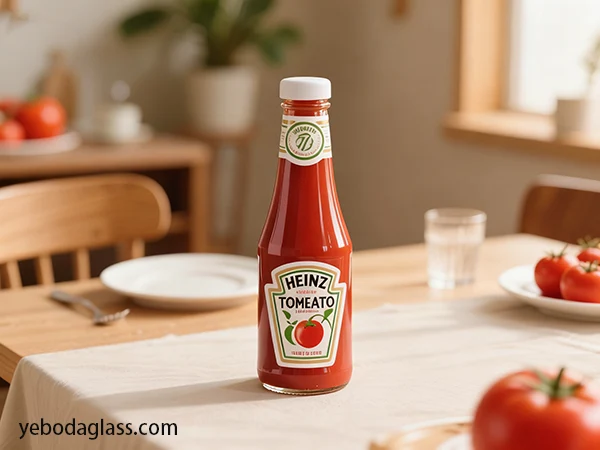
Risk Mitigation Strategies
If a supplier is chosen, it is advisable to put into operation strategies that will keep your enterprise safe.
- Robust Contractual Agreements: The Supply Agreement with your vendor should be detailed. Besides other things, it has to specify quality requirements (together with an agreed-upon Acceptable Quality Limit-AQL), prices, delivery times, payment conditions, compensation for defects, and intellectual property rights for any custom molds.
- Secondary Sourcing Plan: To be stable in the long run, do not depend on a single source only. Locate and qualify a backup supplier. To them, you may give only 10-20% of the volume at the beginning, but they will be able to extend the 80-90% quickly in case of the failure of your primary supplier.
- Ongoing Performance Monitoring: It is not only the occasion of the contract signing. Yes, the work continues after it. Supplier performance should be continuously assessed through a scorecard that measures on-time delivery, quality acceptance rates, and eminency. Periodical business reviews should also be held to foster the relationship and keep it at a high professional level.
Using this stringent, multi-dimensional method, you are able to go beyond merely a price-based decision and thereby establish a strategic partnership with a supplier who will not only provide high-quality hot sauce bottles bulk but will also be compatible with your growth and, eventually, be a vital part of your brand’s success in the long run.

